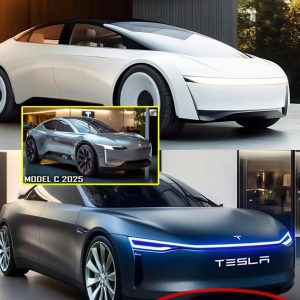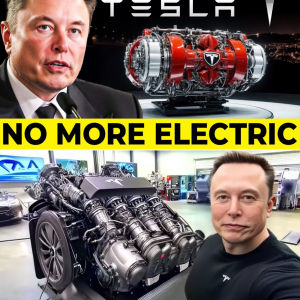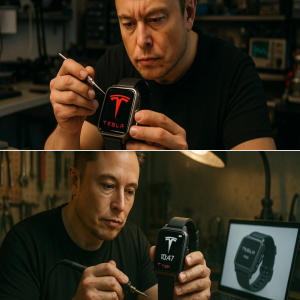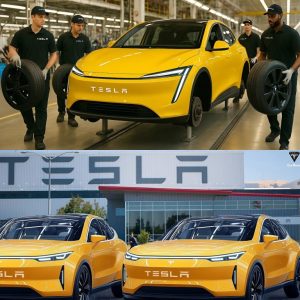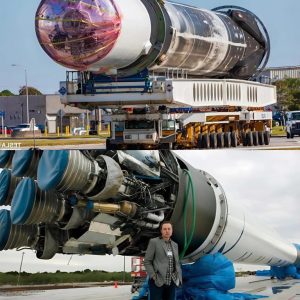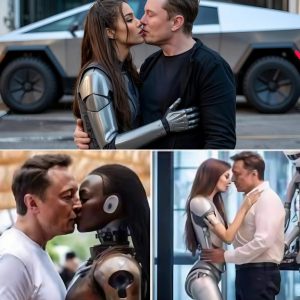Toyota’s New Hydrogen Engine: A Potential EV Industry Earthquake
A Bold Prediction from Toyota’s CEO
Toyota’s CEO stirred the automotive world when he declared their new hydrogen combustion engine could “destroy the entire EV industry.” That’s a hefty claim, especially as electric vehicles (EVs) sprint toward mainstream adoption. But Toyota isn’t talking about just another hybrid—they’re touting a breakthrough that promises gas-engine performance, EV-like efficiency, and only water vapor as exhaust. Buckle up: this hydrogen twist might rewrite the rules of sustainable transportation.
The Hydrogen Combustion Engine Explained
At the heart of Toyota’s announcement lies a next-gen hydrogen engine. Unlike fuel-cell vehicles that convert hydrogen to electricity, this design combusts hydrogen directly in a modified internal-combustion engine. Key benefits include:
- Zero CO₂ Emissions: Burning hydrogen produces only water vapor, eliminating tailpipe greenhouse gases.
- Familiar Refueling: Drivers fill up in 3–5 minutes, just like a gasoline car—no hours-long charge waits.
- High Efficiency: Targeted fuel consumption rivals top hybrids at under 3 liters per 100 km, bridging the gap between EVs and traditional engines.
By leveraging Toyota’s decades of engine expertise, this combustion approach sidesteps battery limitations while promising immediate infrastructure compatibility.

Why Toyota Thinks This Could Topple EVs
Toyota’s bold forecast rests on three pillars:
- Rapid Infrastructure Rollout: Building a network of hydrogen stations costs less and scales faster than dense EV charging grids, especially in regions with spotty power supply.
- Broad Fuel Production: Hydrogen can derive from renewables (electrolyzing water with solar/wind) or cleaner steam methane reforming, reducing reliance on lithium, cobalt, and nickel mining.
- Performance Familiarity: Consumers wary of EV range anxiety or charging hassles might embrace a hydrogen car that acts—and refuels—exactly like today’s gasoline vehicles.
Combine these factors, and Toyota foresees hydrogen vehicles winning over buyers who remain on the fence about purely electric models.
Comparing Hydrogen vs. Battery Electric
At first glance, EVs and hydrogen might seem like rivals. Yet each has unique advantages:
- Evangelists Love EVs for: Instant torque, lower maintenance, zero tailpipe pollutants, and home charging convenience.
- Hydrogen Advocates Highlight: Rapid refuels, lighter fuel storage, and less battery degradation over time.
Toyota bets on this duality: vehicles that blend the best of both worlds, appealing to drivers who crave range, performance, and fast refueling.
Infrastructure Challenges and Opportunities
Critics point out that hydrogen stations number in the low thousands globally—far fewer than EV chargers. Building them requires:
- Production Facilities: Green hydrogen plants powered by renewables.
- Distribution Networks: High-pressure pipelines or tanker delivery systems.
- Safety Protocols: Specialized storage and handling for a flammable gas.
Yet Toyota argues these hurdles are surmountable with government and private-sector collaboration. Countries like Japan, Germany, and California already invest heavily in hydrogen ecosystems, signaling a viable path forward.

Environmental Impacts Beyond Tailpipes
While hydrogen cars emit only water, the carbon footprint hinges on how hydrogen is made:
- Gray Hydrogen: Produced from natural gas, releasing CO₂ unless captured.
- Blue Hydrogen: Gas-derived with carbon capture—lower emissions but higher costs.
- Green Hydrogen: Electrolysis powered by wind, solar, or hydro—truly zero-carbon but currently pricier.
Toyota’s long-term vision prioritizes green hydrogen, banking on plummeting renewable energy costs to drive down production expenses. If they succeed, hydrogen could rival or even outshine battery EVs in lifecycle emissions.
Market Dynamics and Industry Reaction
A Toyota hydrogen breakthrough could unsettle established EV players:
- Tesla & Rivian: Firms focused exclusively on batteries may scramble to explore hydrogen partnerships.
- Legacy Automakers: Many already hedge bets with hybrids and fuel cells; Toyota’s engine adds another arrow to their quiver.
- Charging Networks: EV charging operators might diversify into hydrogen fueling, forging new alliances.
Analysts caution that mass-market adoption depends on cost parity. Toyota must prove that a hydrogen car—even with premium tech—can match or beat EV prices once scaled.
Real-World Use Cases
Beyond personal cars, hydrogen shines in heavy-duty and remote applications:
- Trucking Fleets: Quick refuels and high energy density suit long-haul routes better than lengthy battery charges.
- Construction & Agriculture: Off-grid work sites benefit from portable hydrogen refueling units.
- Public Transit & Buses: Zero emissions, fast turnaround times, and centralized fueling depots.
In these sectors, Toyota’s engine could gain traction more rapidly, building momentum for broader passenger-car adoption.
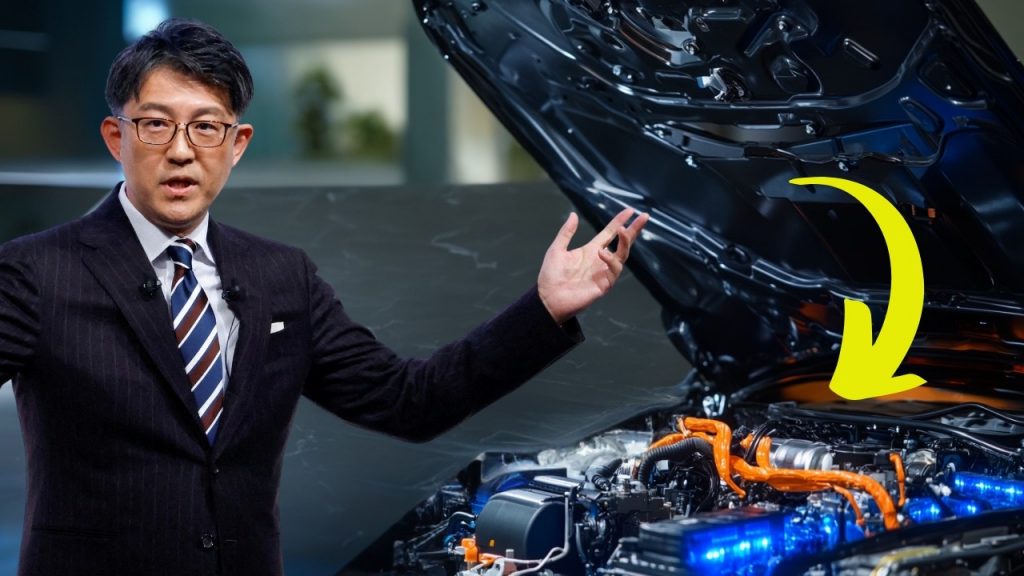
The Road Ahead: Balancing Innovation and Reality
Toyota’s CEO painted a dramatic picture—an industry turned upside down by hydrogen. Yet the real story will unfold over the next few years:
- Pilot Deployments: Limited fleets in hydrogen-friendly regions will test reliability, costs, and consumer acceptance.
- Economies of Scale: As manufacturing ramps up, Toyota aims to drive down per-unit costs, challenging battery-electric price points.
- Policy Support: Subsidies, tax incentives, and regulatory frameworks will make or break hydrogen’s mainstream breakthrough.
For consumers, the verdict hinges on tangible benefits: seamless refueling, competitive pricing, and genuine environmental gains.
Conclusion
Toyota’s new hydrogen combustion engine stakes its claim as a potential disruptor to battery-electric vehicles. By promising quick refuels, broad fuel sourcing, and familiar driving experiences—all with zero tailpipe CO₂—it presents a compelling alternative to EVs. Infrastructure challenges and production costs remain hurdles, but Toyota’s industry leadership and global partnerships could tip the balance. As EV adoption accelerates and climate urgency intensifies, hydrogen’s moment in the sun may have finally arrived. The coming years will reveal whether this bold vision truly “destroys” the EV industry—or ushers in a collaborative future where infrared combustion and lithium batteries drive us toward a cleaner planet.
